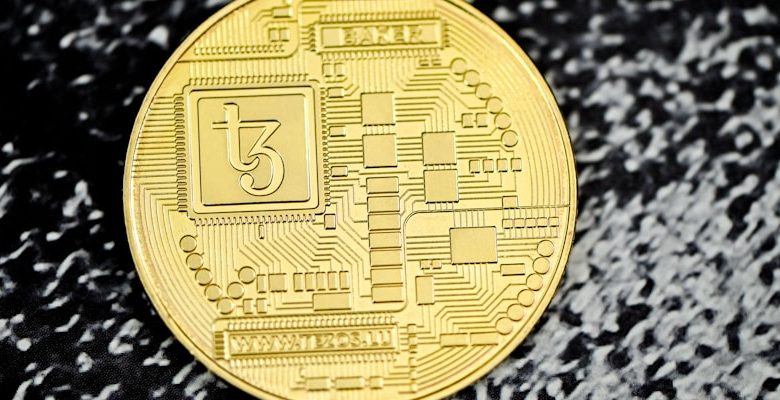The Role of Blockchain in Decentralized Healthcare Systems

- The evolution of healthcare systems
- Understanding decentralized healthcare
- Blockchain technology and its impact on healthcare
- Advantages of decentralization in healthcare
- Challenges of implementing blockchain in healthcare
- The future of decentralized healthcare systems
The evolution of healthcare systems
Over the years, healthcare systems have undergone significant evolution to adapt to the changing needs of patients and advancements in technology. Initially, healthcare was primarily delivered through traditional methods, relying on in-person consultations and paper-based records. However, with the advent of digital technologies, healthcare systems have transitioned towards more efficient and streamlined processes.
One key development in healthcare systems has been the shift towards electronic health records (EHRs). EHRs have revolutionized the way patient information is stored and accessed, allowing for seamless communication between healthcare providers and improved coordination of care. This transition has not only enhanced the quality of care but also increased the efficiency of healthcare delivery.
Another important aspect of the evolution of healthcare systems is the focus on patient-centered care. Healthcare providers are now placing a greater emphasis on involving patients in their own care decisions, promoting shared decision-making and personalized treatment plans. This patient-centric approach has been shown to lead to better health outcomes and increased patient satisfaction.
Furthermore, healthcare systems have also made strides in integrating technology into patient care. Telemedicine, for example, has become increasingly popular as a way to provide remote consultations and monitoring, especially in rural or underserved areas. This use of technology has helped to improve access to care and reduce healthcare disparities.
Overall, the evolution of healthcare systems has been driven by a desire to improve patient outcomes, enhance efficiency, and embrace technological advancements. As healthcare continues to evolve, the integration of blockchain technology has the potential to further revolutionize the way healthcare systems operate, offering increased security, transparency, and decentralization.
Understanding decentralized healthcare
Decentralized healthcare refers to a system where medical data is stored and managed across a distributed network, rather than in a centralized database. This approach offers several advantages in terms of security, accessibility, and efficiency. By utilizing blockchain technology, decentralized healthcare systems can ensure that patient information is securely encrypted and only accessible to authorized individuals. Additionally, the decentralized nature of the system means that there is no single point of failure, reducing the risk of data breaches or cyber attacks.
One of the key benefits of decentralized healthcare is the ability to give patients more control over their own medical records. With blockchain technology, patients can securely access and share their health information with healthcare providers as needed, without having to rely on intermediaries. This not only streamlines the process of sharing information but also empowers patients to take a more active role in managing their own healthcare.
Furthermore, decentralized healthcare systems can improve interoperability between different healthcare providers and systems. By using a standardized format for storing and sharing data, blockchain technology enables seamless communication between various healthcare entities. This can result in more coordinated care for patients, as providers have access to a comprehensive view of a patient’s medical history and treatment.
Overall, decentralized healthcare has the potential to revolutionize the way medical information is stored, shared, and utilized. By leveraging blockchain technology, healthcare systems can enhance security, promote patient autonomy, and improve overall efficiency. As the healthcare industry continues to evolve, decentralized systems are likely to play a significant role in shaping the future of healthcare delivery.
Blockchain technology and its impact on healthcare
Blockchain technology has the potential to revolutionize the healthcare industry by providing a secure and decentralized platform for storing and sharing patient data. This technology uses cryptographic techniques to ensure that data is tamper-proof and accessible only to authorized users. By utilizing blockchain in healthcare systems, organizations can improve data security, streamline operations, and enhance patient care.
One of the key benefits of blockchain technology in healthcare is its ability to create a transparent and immutable record of patient information. This can help to reduce errors, prevent fraud, and ensure the privacy of sensitive data. Additionally, blockchain can facilitate the sharing of data between different healthcare providers, allowing for more coordinated and efficient care.
Another advantage of blockchain technology is its potential to enable patients to have more control over their own health data. With blockchain, patients can grant access to their information to different providers as needed, ensuring that their data remains secure and confidential. This can lead to better communication between patients and healthcare professionals, ultimately improving the quality of care.
Overall, blockchain technology has the potential to transform the healthcare industry by providing a secure and efficient way to store and share patient data. By leveraging blockchain in decentralized healthcare systems, organizations can enhance data security, improve patient care, and create a more transparent and patient-centric healthcare ecosystem.
Advantages of decentralization in healthcare
Decentralization in healthcare offers numerous benefits that can revolutionize the industry as we know it. By distributing decision-making authority across various nodes in the system, rather than having it concentrated in a single entity, decentralization can lead to improved efficiency, transparency, and security.
One of the key advantages of decentralization in healthcare is improved access to care. By breaking down traditional barriers to entry, such as geographical location or institutional affiliations, decentralized systems can ensure that patients have access to a wider range of healthcare providers and services.
Additionally, decentralization can help to reduce costs by eliminating the need for intermediaries and streamlining administrative processes. This can result in lower overhead expenses for healthcare providers and ultimately lead to more affordable care for patients.
Another advantage of decentralization is enhanced data security and privacy. By storing patient information on a distributed ledger, such as a blockchain, healthcare organizations can protect sensitive data from cyber attacks and unauthorized access. This not only helps to safeguard patient confidentiality but also ensures the integrity of medical records.
Furthermore, decentralization can foster innovation in healthcare by encouraging collaboration and information sharing among stakeholders. With a decentralized system, healthcare providers, researchers, and patients can more easily exchange ideas, data, and best practices, leading to the development of new treatments and technologies.
In conclusion, decentralization has the potential to transform the healthcare industry by promoting accessibility, efficiency, security, and innovation. By embracing decentralized systems, healthcare organizations can pave the way for a more patient-centered and sustainable future.
Challenges of implementing blockchain in healthcare
Implementing blockchain technology in the healthcare industry comes with its own set of challenges that need to be addressed in order to maximize its potential benefits. One of the main challenges is the issue of data privacy and security. As healthcare data is highly sensitive and confidential, ensuring that it is protected from unauthorized access and tampering is crucial. Blockchain technology can help address this challenge by providing a secure and immutable platform for storing and sharing healthcare data.
Another challenge is the interoperability of different healthcare systems. In order for blockchain technology to be effectively implemented in healthcare, there needs to be a seamless exchange of data between different systems and providers. This can be a complex process due to the variety of systems and standards used in the healthcare industry. However, by establishing common protocols and standards for data exchange, interoperability challenges can be overcome.
One more challenge is the scalability of blockchain technology. As healthcare data continues to grow exponentially, it is important to ensure that blockchain networks can handle the increasing volume of transactions. This requires the development of efficient consensus mechanisms and network infrastructure to support the scalability of blockchain in healthcare.
Overall, while there are challenges to implementing blockchain technology in healthcare, the potential benefits in terms of data security, interoperability, and scalability make it a promising solution for transforming the healthcare industry. By addressing these challenges and working towards a more decentralized healthcare system, blockchain technology has the potential to improve patient care and outcomes.
The future of decentralized healthcare systems
As we look towards the future of decentralized healthcare systems, it is clear that blockchain technology will play a crucial role in shaping the way healthcare is delivered and managed. By leveraging blockchain’s secure and transparent nature, healthcare providers can ensure the integrity of patient data, streamline processes, and improve overall efficiency.
One of the key benefits of decentralized healthcare systems is the ability to give patients more control over their own health information. With blockchain, patients can securely access and share their medical records with healthcare providers, reducing the risk of errors and ensuring that all relevant parties have access to the most up-to-date information.
Additionally, blockchain technology can help to address issues of interoperability within the healthcare system. By creating a unified platform for data sharing, blockchain can facilitate seamless communication between different healthcare providers, ultimately leading to better coordinated care for patients.
Moreover, decentralized healthcare systems powered by blockchain have the potential to enhance data security and privacy. With blockchain’s cryptographic algorithms and decentralized network, patient data can be stored securely and accessed only by authorized parties, reducing the risk of data breaches and unauthorized access.
Overall, the future of decentralized healthcare systems looks promising with the integration of blockchain technology. By harnessing the power of blockchain, healthcare providers can revolutionize the way healthcare is delivered, making it more patient-centric, efficient, and secure.



